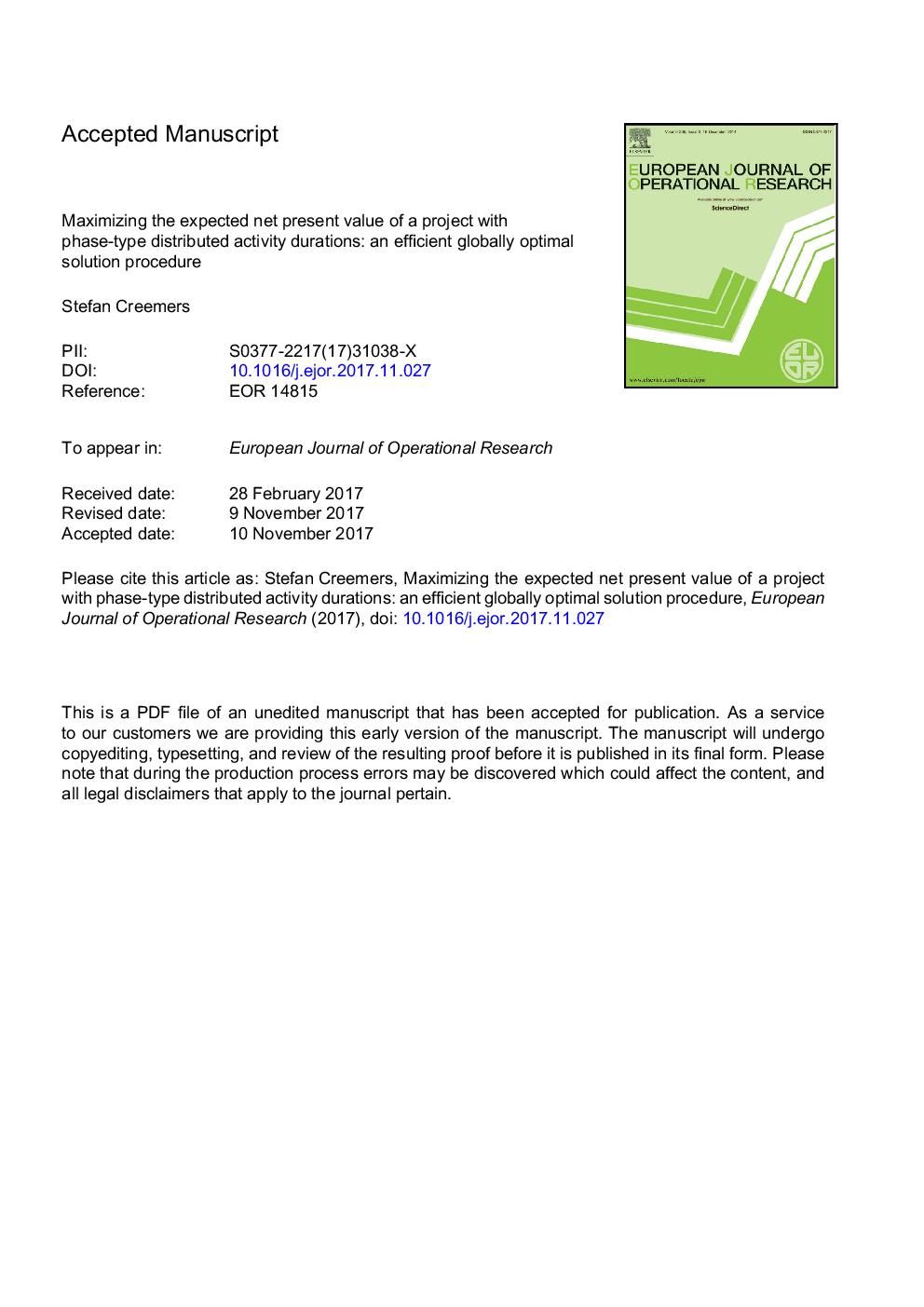| Article ID | Journal | Published Year | Pages | File Type |
|---|---|---|---|---|
| 6895026 | European Journal of Operational Research | 2018 | 18 Pages |
Abstract
We study projects with activities that have stochastic durations that are modeled using phase-type distributions. Intermediate cash flows are incurred during the execution of the project. Upon completion of all project activities a payoff is obtained. Because activity durations are stochastic, activity starting times cannot be defined at the start of the project. Instead, we have to rely on a policy to schedule activities during the execution of the project. The optimal policy schedules activities such that the expected net present value of the project is maximized. We determine the optimal policy using a new continuous-time Markov chain and a backward stochastic dynamic program. Although the new continuous-time Markov chain allows to drastically reduce memory requirements (when compared to existing methods), it also allows activities to be preempted; an assumption that is not always desirable. We prove, however, that it is globally optimal not to preempt activities if cash flows are incurred at the start of an activity. Moreover, this proof holds regardless of the duration distribution of the activities. A computational experiment shows that we significantly outperform current state-of-the-art procedures. On average, we improve computational efficiency by a factor of 600, and reduce memory requirements by a factor of 321.
Keywords
Related Topics
Physical Sciences and Engineering
Computer Science
Computer Science (General)
Authors
Stefan Creemers,
